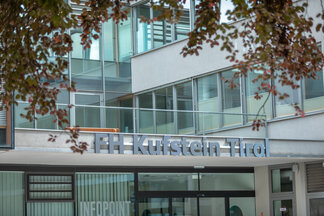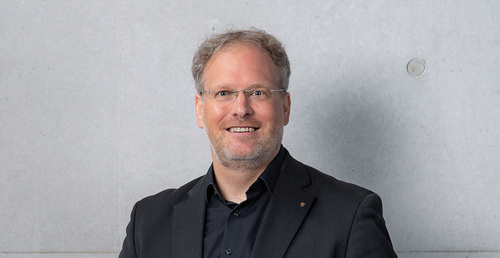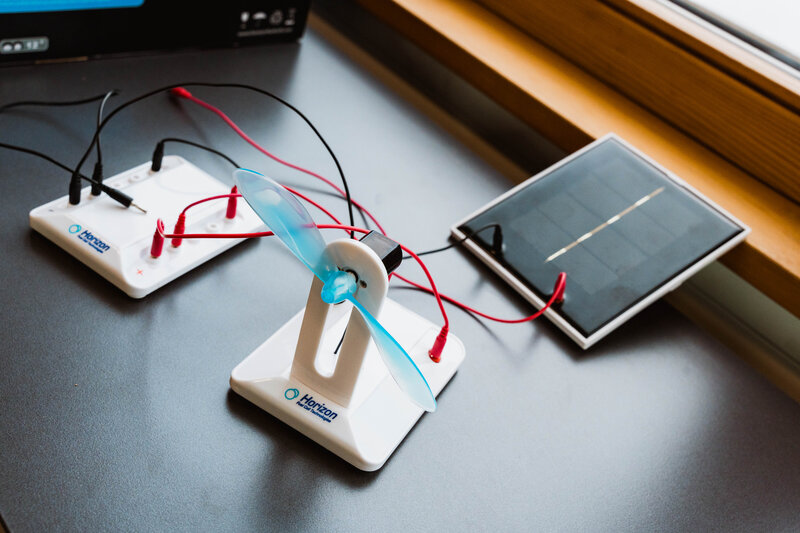Expand your knowledge of international strategic management, sustainability, renewable energies, and innovative mobility concepts with our full-time master's program. Turn your vision of a sustainable future into a rewarding career!

Energy & Sustainability Management
Master's degree program
Overview
-
Qualification Level:
Stufe 2, Master -
Price:
Euro 363,36* (excl. Student Union-fees) each semester -
Academic Degree:
Master of Arts in Business (MA) -
Academic Program:
Full-time -
Language:
100% English -
Remote Options:
E-Learning max. 30 % online -
Exchange Semester:
Study trip in the 4th semester** -
Admission Requirements:
General admission requirements -
Study Places per Year:
14
Program Description



Broaden your horizons with us! As a graduate in business, social sciences or technology, you will expand your skills in strategic sustainability management with an international focus. Whether in a corporate environment or your own start-up, we offer project- and research-based learning for innovative solutions and leadership skills.
The Master's program focuses on the international and European perspective of energy and sustainability management. We provide students with in-depth knowledge to develop innovative solutions for sustainability, environmental and climate protection. Key areas such as sustainability assessment, strategic management and AI-driven data analysis are covered in depth. The master's thesis encourages applied research. Students expand their networks through business evenings and projects. The program strengthens core competencies and promotes a holistic view of sustainability, which is essential for strategic planning in companies, public institutions, NGOs or personal start-ups.
Study Focus
-
35 %
technological knowledge in sustainability & energy systems
-
35 %
strategic expertise & leadership
-
30 %
strategic expertise & leadership
What You Will Learn
-
Strategic development and management of sustainability goals
-
Development of sustainable products and services
-
Environmental and sustainability consulting
-
Project management in the energy & sustainability sector
-
Strategic communication of sustainability aspects
-
Strategic development of innovative mobility concepts
-
Trading in renewable energies
Popular Occupational Fields
- Product development and innovation management for energy, mobility & sustainability
- Strategic energy & sustainability consulting
- International sustainability & environmental auditing & controlling
- Strategic trading of renewable energies
- Project management & research activities
Career Opportunities
-
EUR 60.900,- average salary
for sustainability managers in Austria in 2024 (according to Kununu)
-
EUR 59.900,- average salary
for sustainability managers in Germany in 2024 (according to Kununu)
The path to the Master's degree

Our English-language full-time Master's degree program in Energy and Sustainability Management offers you a comprehensive background and a holistic international overview. In the first semester, you will learn the principles of sustainability management and energy technologies. You will then focus on environmental auditing and controlling, data analysis, sustainable investment and communication. The Master's thesis enables you to research a specific topic and contribute to the body of current knowledge.
Special features:
-
Personal supervision by lecturers and the degree program team
-
Extensive network and business contacts
-
Practical projects and scientific research opportunities
Recognition of Prior Learning
Students have the option to receive credit for skills and competencies they have already acquired before the start of each semester.
To apply for credit, they must submit a request directly to the Director of Studies.
Director of Studies

Asc. Prof. (FH) Dipl.-Ing. Christian Huber
Director of Studies Bachelor Energy & Sustainability Management, Facility & Real Estate Management / Master Energy & Sustainability Management, Facility & Real Estate Management / Institute for Sustain & Estate
Curriculum
practical transfer
Strategic Project Management
- Semester 1
- 5 ECTS
• Tasks, tools and methods of project management • Organization: Structural, process and project organization • Schedule, cost and quality management • Resource management • Communication and integration • Risk management
DetailsData Analytics & Empirical Methods
- Semester 2
- 5 ECTS
Empirical methods and academic methods • research practice and fact-based decisions • qualitative and quantitative methods, research design and forms of data collection (e.g. interview, questionnaire, observation, field and laboratory study, experiment, simulation) • basics Exposé for the Master thesis Data Analysis • univariate and multivariate data analysis • predictive statistical data analysis (Machine Learning) and methodology of inferential statistics • probability theory, information theory, Bayes Theorem • system dynamics and agenda-based modeling • application of methods of data analysis • presentation and visualization of data
DetailsBusiness Project
- Semester 3
- 5 ECTS
Students must carry out a project of 5 ECTS = 125 h independently in small groups. The basis for this is a set objective. The students are responsible for planning, coordination, budgeting, monitoring, communication and reporting as well as finding solutions. The role of the course leader is focused on coaching the students.
DetailsBusiness & Research Transfer
- Semester 4
- 3 ECTS
Examples and solution approaches from practice and research will be presented in lectures by experts as well as excursions to companies and research institutions. The students analyze and reflect on the presented input. The students transfer research findings in an exemplary manner for specific practical applications. Methods of research are discussed for problems from practice.
DetailsMaster Thesis & Colloquium
- Semester 4
- 24 ECTS
Students must independently complete a Master thesis of 20 ECTS = 500 h. Regular meetings to discuss the current status and progress of the Master thesis with the accompanying academic supervision serve as support. In the context of a colloquium with the scope of 2 ECTS = 50h, the following course contents are dealt with: • Independent preparation and elaboration of an interdisciplinary subject • Finding and substantiation of the methodology • Content-related and organizational support for the preparation of the Master thesis • Presenting and defending academic papers • Leading discussions on academic papers • Information on the final Master's examination The preparation for the final examination is included with 2 ECTS = 50h.
DetailsSocial & International Skills
International Energy & Sustainability Management - Project
- Semester 3
- 5 ECTS
One blocked compact weeks in small groups with international students: • Introduction, consolidation, background and examples in the complex of topics of the project within the framework of a conference or introductory event. • Research and analysis of framework conditions and possibilities • Development and visualization of ideas and concepts • Presentation of the results to stakeholders and/or technical experts
DetailsInternational Energy & Sustainability Management - Practice, Research & Study Trip
- Semester 4
- 3 ECTS
Students must complete an accompanied study trip / trip abroad with a specialist program. Within the scope of the study trip / trip abroad, the following contents are taught: • Introduction and consolidation of international Best - and Real Case projects from the Energy and Sustainability Management practice as well as studies from research • Current topics of research and development by participation in international conferences • Research and analysis of international Best Case projects for Energy and Sustainability Management • Visit of international Best Case projects for Energy and Sustainability Management • Application of intercultural skills and highlighting of particularities and challenges of intercultural projects for Energy and Sustainability Management
DetailsTechnology
Compendium Energy Technologies
- Semester 1
- 5 ECTS
• Electrochemistry • Mechanics • Thermodynamics • Electrical engineering • Design, operation and characteristics of power generation plants
DetailsInnovative Energy Concepts
- Semester 1
- 5 ECTS
• Sector coupling • Demonstration projects such as Smart City Lab • Electricity grids • Heat grids • Power2X
DetailsMobility Management
- Semester 2
- 5 ECTS
Social aspects of mobility • Infrastructure for sustainable mobility • Economic and strategic implementation • Analysis of international and national mobility projects • Exemplary development of sustainable mobility concepts
DetailsSmart Cities & Communities
- Semester 3
- 5 ECTS
• Background of Smart Cities • Definitions of the Smart City concept • Smart Economy, Smart Mobility, Smart Environment, Smart People, Smart Living, Smart Governance • Technical, organizational, economic and socio-cultural aspects of Smart Cities
DetailsSustainable Building Certification
- Semester 3
- 5 ECTS
• Requirements for a sustainable building in the planning and construction process as well as in operation • Life cycle analyses • National and international certification systems • Ecological, economic and socio-cultural sustainability criteria in relation to buildings (e.g. flexibility and conversion capability)
DetailsBusiness and Management
Strategic Business Management & HRM
- Semester 1
- 5 ECTS
• Strategic Business Management o strategic pyramid (mission, vision and mission statement, goals, strategies) o strategic models, decision theories and competitive strategies o tools of strategic analysis and planning (e.g. SWOT, portfolio analysis) • Human Resource Management o tasks of human resources work and personnel planning o personnel costs including key figures, salary increase, participation models, forms of remuneration o personnel assessment, motivation theories and personnel development o leadership theories o Corporate Social Responsibility (CSR) at the workplace
DetailsEnergy Market & Trading I
- Semester 1
- 5 ECTS
• Trading cascade in the electricity and gas market • Different markets for system services • Fundamental factors influencing energy markets • Markets for renewable energy sources • Commodity futures trading • Exchange vs. OTC • OTC contracts • CO2 trading markets • Factors influencing the electricity price • Merit order principle
DetailsCompendium Energy Economics & Sustainability
- Semester 1
- 5 ECTS
• Methods of Sustainability Assessment • History & Stakeholders of the Energy Industry • Quality Management • Sustainability Management • Energy, Climate Protection and Environmental Policy • Energy, Climate Protection and Environmental Law • Promotion Instruments and Marketing Concepts of Energy
DetailsInnovative Business Concepts
- Semester 2
- 5 ECTS
• Sustainable innovations, eco-design and trends in the energy industry and energy technology as well as the sustainability industry • Development status of technological trends • Innovative business models in the energy and sustainability industry • Value chain of the energy industry and sustainability industry • Design Thinking • Open Innovation
DetailsEnergy Market & Trading II
- Semester 2
- 5 ECTS
• Corporate Strategies • Trading and Procurement Strategies • Standardized Exchange Products & Trading Markets • Procurement in Electricity and Gas Markets • Interaction of Generation, Transmission and Distribution of Electricity
DetailsInvestment & Risk Management
- Semester 2
- 5 ECTS
• Investment calculation and life cycle costing (dynamic and modern approaches) • Credit financing (loans, bonds) • Equity financing (shares) •Financial institutions • Derivatives • Market risk and management •Behavioral economics • Financing and valuation of infrastructure and real estate
DetailsCircular & Bioeconomy
- Semester 2
- 5 ECTS
• Technical and biological cycle for products • Life cycle analysis (costs, energy, CO2) • Economic models • Political measures in connection with the circular economy and bioeconomy • Waste management
DetailsMarketing & Communications
- Semester 3
- 5 ECTS
Strategic marketing • conceptual foundations and theoretical approaches • selected cases marketing strategies • implementation and monitoring of marketing strategies Citizen participation procedures • actors and legal foundations • methods for citizen participation • selected cases citizen in citizen participation procedures Business mediation and conflict management • theories and concepts • practical applications
DetailsSustainability & Environmental Controlling
- Semester 3
- 5 ECTS
• Business ethics • Corporate (social) responsibility and compliance • Structure of sustainability reports and reporting standards • Functions and motives of environmental controlling • Auditing of management systems (ISO 19011) • Environmental management system ISO 14001, ISO 14044ff and EMAS • Process modeling in the context of environmental and sustainability audits, environmental impact assessment, eco-labels and eco-labels
DetailsStudy regulations to download
-
Energy & Sustainability Management
in effect since October 23, 2024, start of study program from academic year 2025/26
- All study regulations
Frequently Asked Questions
What is special about this degree program?
The Master's degree in Energy & Sustainability Management is characterized by its broad spectrum of skills, which includes the areas of sustainability communication, business and technology. Compared to other university courses, we deliberately build on a wide range of prior knowledge in order to offer our students a comprehensive education. The possibility of individual specialization through elective subjects and the flexible design of classroom teaching enable students to adapt their studies to their personal interests and professional goals. In addition, a work-life-study balance is supported by strongly blocked attendance teaching units and a high proportion of self-learning, which enables students to successfully reconcile their studies with other commitments.
Can I work while studying?
Yes, this is possible, but not a mandatory requirement. Our Master's program is not designed as a dual study program. You have the freedom to work during your studies or not. Many of our students use the Master's program to reorient themselves professionally or to re-enter working life after maternity or parental leave. However, we recommend limiting working hours to a maximum of 30 hours per week in order to avoid overworking and to be able to devote sufficient time to your studies. If the workplace is flexible enough and the company provides support, it is possible to successfully manage the study load.











